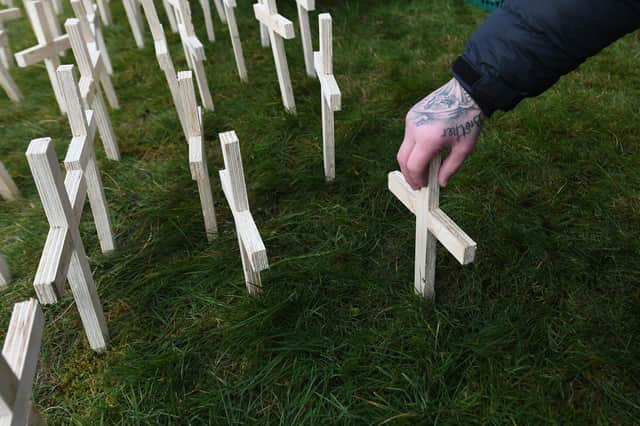Scottish Drug Deaths Task Force resignations suggest Scottish government may make situation worse – Scotsman comment


As a report published in July by the National Records of Scotland shows, it subsequently rose sharply to the record figure of 1,339 last year, an increase of more than 150 per cent in seven years. The figures rise steadily: 614 deaths in 2014, 706 in 2015, 867 in 2016, 934 in 2017, 1,187 in 2018, and 1,264 in 2019.
But it was only in 2019 that the Scottish government decided to set up a Scottish Drug Deaths Task Force. As Nicola Sturgeon admitted earlier this year, her government had taken its “eye off the ball”.
Advertisement
Hide AdAdvertisement
Hide AdGiven the rising death toll, it is understandable that the Scottish government would now wish to act swiftly.
However, the decision of the task force’s chair and deputy chair to quit over ministers’ insistence that they report quickly is a deeply worrying sign that the politicians’ desire to make up for lost time – and their own failings – is damaging efforts to find ways to save people’s lives from the scourge of drugs.
In their resignation letter, Professor Catriona Matheson, an expert in substance misuse from Stirling University, and former Police Scotland deputy chief constable Neil Richardson, wrote: “We have always understood the need for urgency but we feel the current demand for speed is counterproductive and driven by other factors such as meeting targets, rather than achieving the sustainable change evidence shows is more effective.”
When ministers allowed this situation to develop, year by year, they were guilty of bad governance. Now they may have made it worse by more of the same, resulting in the loss of two leading experts.
To outsiders, it might seem the task force has been taking its time. But when not one but two members, and the most senior at that, quit because they feel they are being put under unreasonable pressure, that suggests ministers would have been better advised to wait.
That does not mean that they cannot take the actions that they should have been taking all along – and have now belatedly begun – such as improving access to treatment and rehabilitation, in the meantime.
Harassing experts to the point of resignation offers no redemption for sitting idly by while a deadly situation got out of hand.
